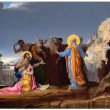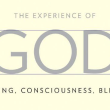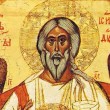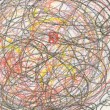Being, Miracles, and God: Answering a Reasonable Atheist
by Mark Shea
Filed under The Existence of God

In the course of a discussion on my personal blog about the existence of God and of the miraculous, an unbelieving reader (who strikes me as open to reasonable discussion) wrote me to say: "All I’m saying is that people everywhere demonstrate a powerful desire to believe that there is intervention in the material universe from outside the material universe." Except that’s not true. Lots of people also demonstrate a powerful desire to believe there is no intervention in the material... Read More
What God Is and Isn’t
by Bishop Robert Barron
Filed under God's Nature

The most signal contribution of David Bentley Hart's new book, The Experience of God: Being, Consciousness, and Bliss (Yale University Press, 2013), is to clarify that serious theists and atheists, though they debate frequently concerning the reality of God, are hardly ever using the word "God" in the same way. This fundamental equivocation contributes massively to the pointlessness and meanness of many of these discussions. It is not so much that Christopher Hitchens and Richard Dawkins... Read More
Why Objective Morality Does Not Depend on God
by Steven Dillon
Filed under Objective Morality

EDITOR'S NOTE: Today continues our eight-part debate on the resolution, "Does objective morality depend on the existence of God?" We'll hear from two sharp young thinkers. Joe Heschmeyer, a Catholic seminarian in Kansas City, Kansas, will argue the affirmative view. Steven Dillon, a gifted philosopher and a former Catholic seminarian, will argue the negative. The eight parts will run as follows: Monday (11/4) - Joe's opening statement (affirmative) Tuesday (11/5) - Steven's opening statement... Read More
Why God is the Ground of Objective Morality
by Joe Heschmeyer
Filed under Objective Morality

EDITOR'S NOTE: Today continues our eight-part debate on the resolution, "Does objective morality depend on the existence of God?" We'll hear from two sharp young thinkers. Joe Heschmeyer, a Catholic seminarian in Kansas City, Kansas, will argue the affirmative view. Steven Dillon, a gifted philosopher and a former Catholic seminarian, will argue the negative. The eight parts will run as follows: Monday (11/4) - Joe's opening statement (affirmative) Tuesday (11/5) - Steven's opening statement... Read More
Answering the Tough Questions about Objective Morality
by Brandon Vogt
Filed under Objective Morality

EDITOR'S NOTE: Today continues our eight-part debate on the resolution, "Does objective morality depend on the existence of God?" We'll hear from two sharp young thinkers. Joe Heschmeyer, a Catholic seminarian in Kansas City, Kansas, will argue the affirmative view. Steven Dillon, a gifted philosopher and a former Catholic seminarian, will argue the negative. The eight parts will run as follows: Monday (11/4) - Joe's opening statement (affirmative) Tuesday (11/5) - Steven's opening statement... Read More
Learning from Agony: Objective Morality Without God
by Steven Dillon
Filed under Objective Morality

EDITOR'S NOTE: Today continues our eight-part debate on the resolution, "Does objective morality depend on the existence of God?" We'll hear from two sharp young thinkers. Joe Heschmeyer, a Catholic seminarian in Kansas City, Kansas, will argue the affirmative view. Steven Dillon, a gifted philosopher and a former Catholic seminarian, will argue the negative. The eight parts will run as follows: Monday (11/4) - Joe's opening statement (affirmative) Tuesday (11/5) - Steven's opening statement... Read More
Confusing the Arguments for God
by Douglas Beaumont
Filed under The Existence of God

In this article I wish to offer some clarification on different categories of arguments for the existence of God. I am not weighing in on the relative value any of them here. Rather, I am just pointing out some distinctions and categories that are often confused or missed at the popular level. Also, due to non-standard nomenclature, specific argument titles are not as important as the actual arguments. Regardless of labels, it is important to keep these distinctions in mind when arguing... Read More
A First Without a Second: Understanding Divine Causality
by Dr. Edward Feser
Filed under The Existence of God

NOTE: Dr. Feser's contributions at Strange Notions were originally posted on his own blog, and therefore lose some of their context when reprinted here. Dr. Feser explains why that matters. For the Thomist, to say that God is the First Cause of things is, first and foremost, to say that He is the cause of their existence at every moment at which they do exist. God creates things out of nothing precisely in the act of conserving them in being, and apart from His continual... Read More
A Mind Prepared for Wonder
by Dominicans of the Province of St. Joseph
Filed under Science

I enjoy reading Edward O. Wilson much more than Richard Dawkins, and recently I started to ask myself why this might be. Both are good writers and present difficult scientific concepts in easy-to-understand language. Both work in the controversial area of sociobiology and the evolution of human beings. Both are post-Christian thinkers with little interest in the nuances and delicacies of theological reasoning. What separates these two men? And, even when I don’t agree with him, what... Read More
Legos, God, and the Fallacy of Composition
by Dr. Edward Feser
Filed under The Existence of God

NOTE: Dr. Feser's contributions at Strange Notions were originally posted on his own blog, and therefore lose some of their context when reprinted here. Dr. Feser explains why that matters. Both critics and defenders of arguments for the existence of God as an Uncaused Cause often assume that such arguments are essentially concerned to explain the universe considered as a whole. That is true of some versions, but not all. For instance, it is not true of Aquinas’s arguments,... Read More






